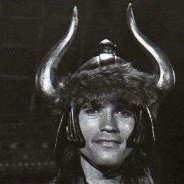Argentina goes to the polls
-
Recently Browsing 0 members
- No registered users viewing this page.
-
Topics
-
-
Popular Contributors
-
-
Latest posts...
-
4
TrueMoney usage abroad
I only have one question about all of these cards and direct payment schemes. Can I transfer money directly into any of them from my foreign bank account. The key word is "DIRECTLY" (SWIFT or ACH, or by using something like Wise). Not through Thai banks that require me to have a bank account with them. Not from having to bring in cash with me and adding credit that way. If I cannot do that then they are all useless to me. -
33
Can you catch diseases from toilet seats?
I was under the impression the Barrett 0.50 calibre was the weapon of choice for long range snipers. On topic, I confine myself to peeing in public toilets. I save defecation for where I live. -
70
Tired of the fake news? Want the TRUTH,News
Doctors attempting to see ICE holding facility at 26 Federal Plaza are rejected. https://www.cbsnews.com/newyork/news/26-federal-plaza-detainee-holding-conditions/ The media is defiantly cheering for criminals. Anybody with half a brain knows DHS is treating these criminals with extrema care ,knowing the evil spin that would result if detention was as they say inhumane. And then the defense by the Government Agency ."Random people that come ,can't just come unannounced". "This is the best healthcare than many aliens have received in their entire lives". -
155
Bank account frozen
NON-IMMIGRANT visas aren’t really long stay. The initial visas are only good for three months, which is actually shorter than the DTV. The yearly extension make them “permanently temporary” as people have wryly noted. -
19
Accident Multiple Injured in Pattaya Motorcycle Collision
Technically... you can't quote Milli Vanilli..... they lip-synched !! There is clear signage at the junctions running parallel to the railway lines, yet locals routinely blow through them without a second thought. The rules are obvious, the warnings are visible – but habit and recklessness seem to take precedence over common sense. One poster on this forum pointed out in the past (after a previous incident), when everyone ignores the junction, those who do follow the rules are left to bear the consequences if they get hit, he pointed out that accidents are the fault of those crossing the railway line... which is of course technically incorrect. The fault isn’t theirs – it’s a direct result of a culture of carelessness and disregard for safety that has become normalised. -
686
The alarming mental decline of Donald J. Trump -- watch this space
Oh, is that so, if its well established then PROVE it fool! PS: "Established fact" in your mind is proof of nothing except your blatant ignorance, gaslighting, basic BS, hysteria, etc cuz you GOT NOTHING! Lets see what you good big talker, dreamer, proof or retraction, because you failed like all democrat haters.
-
-
Popular in The Pub




.thumb.jpg.bc523c85a8d558dbc282dca7a2e602c9.jpg)







Recommended Posts
Create an account or sign in to comment
You need to be a member in order to leave a comment
Create an account
Sign up for a new account in our community. It's easy!
Register a new accountSign in
Already have an account? Sign in here.
Sign In Now